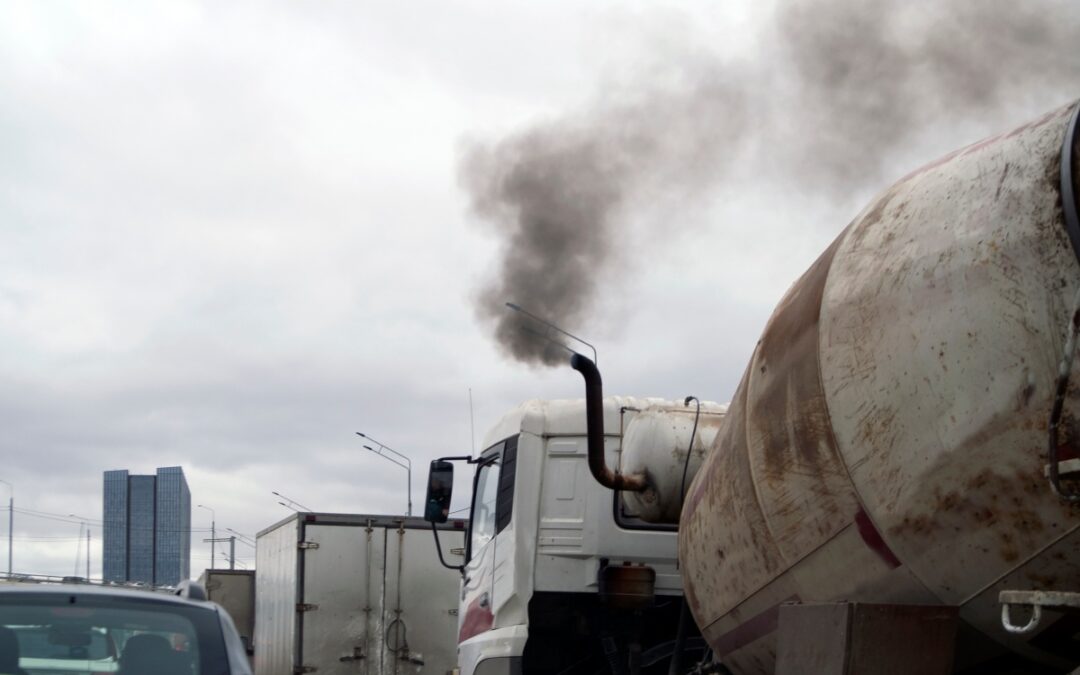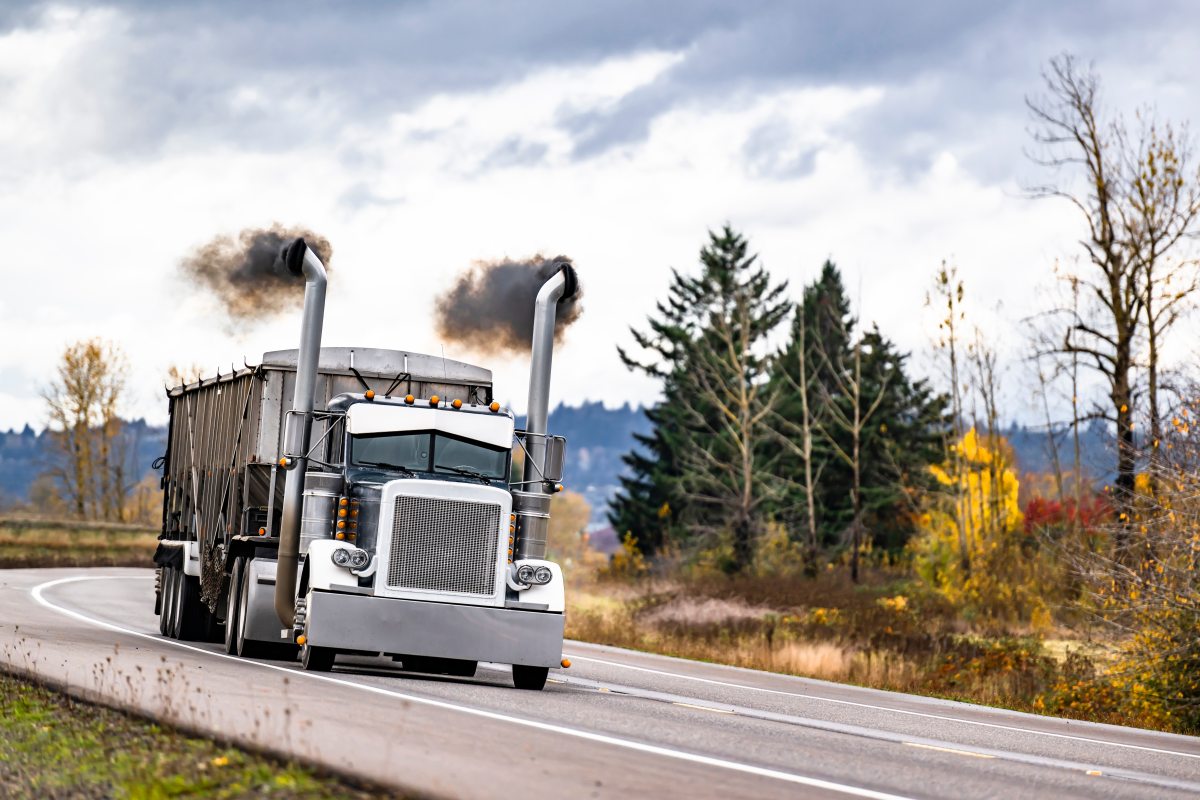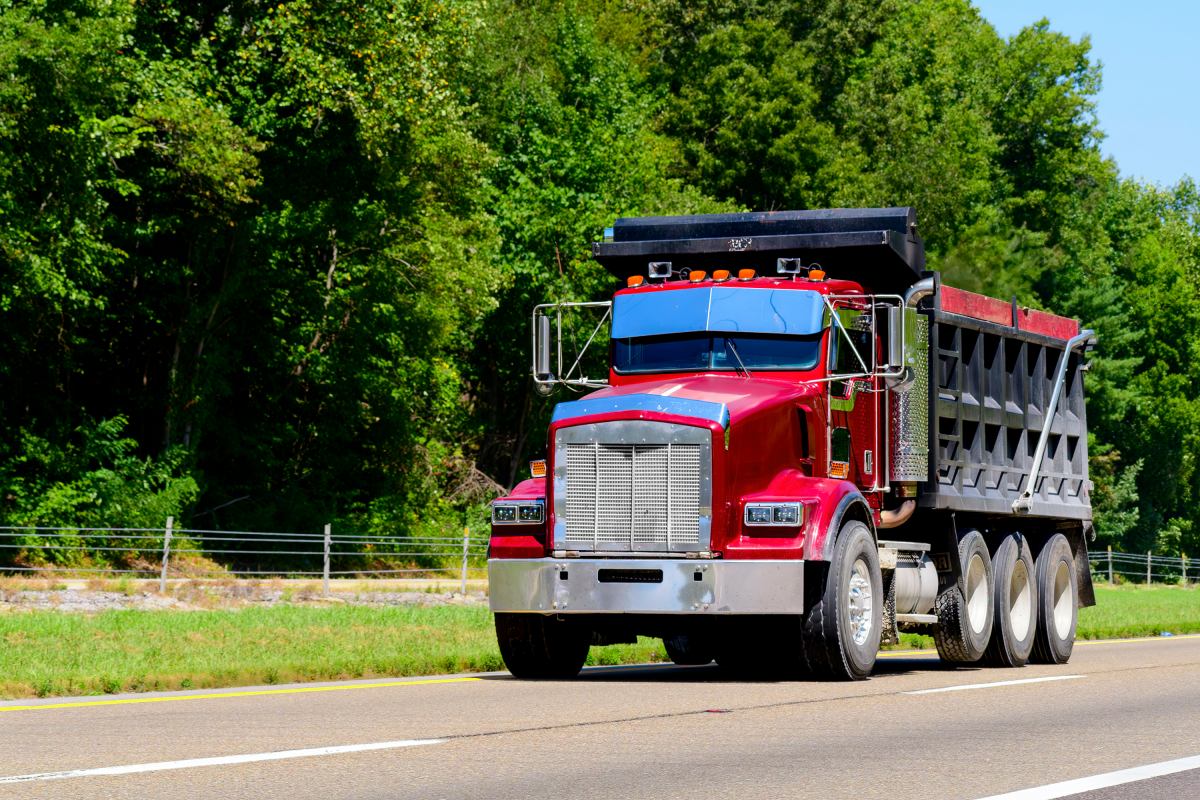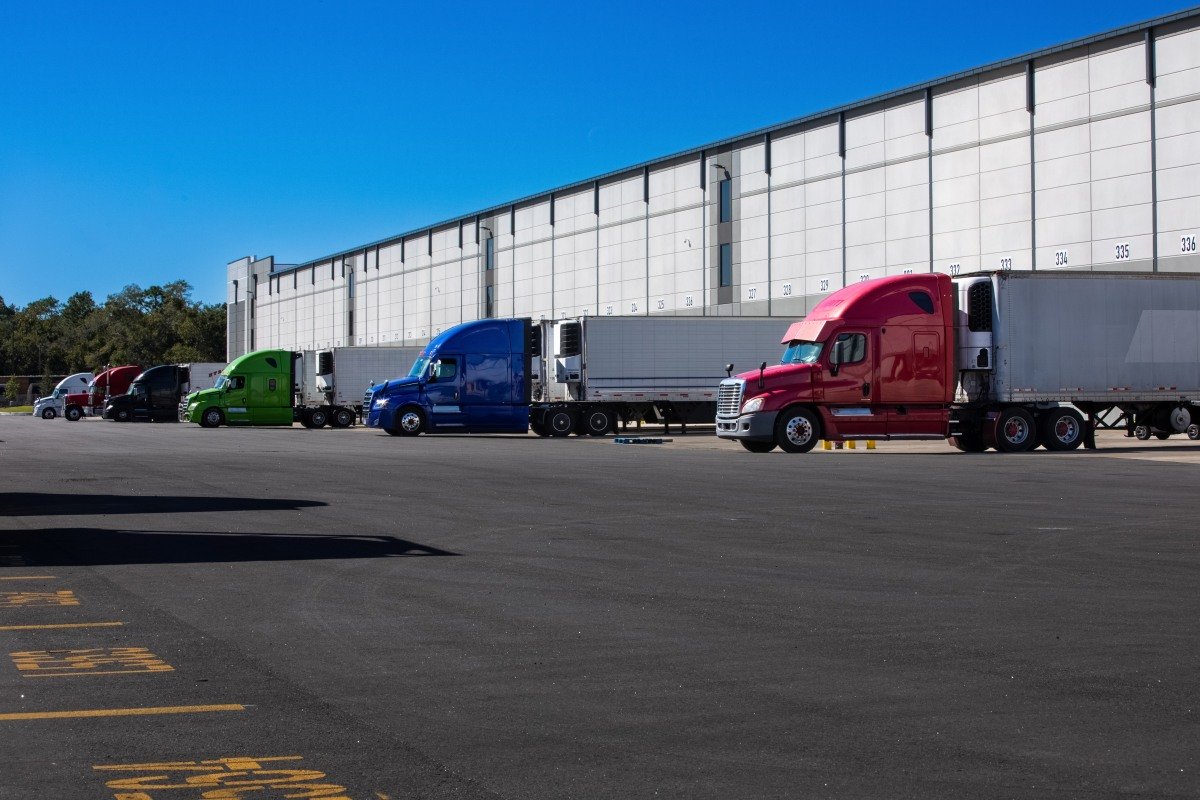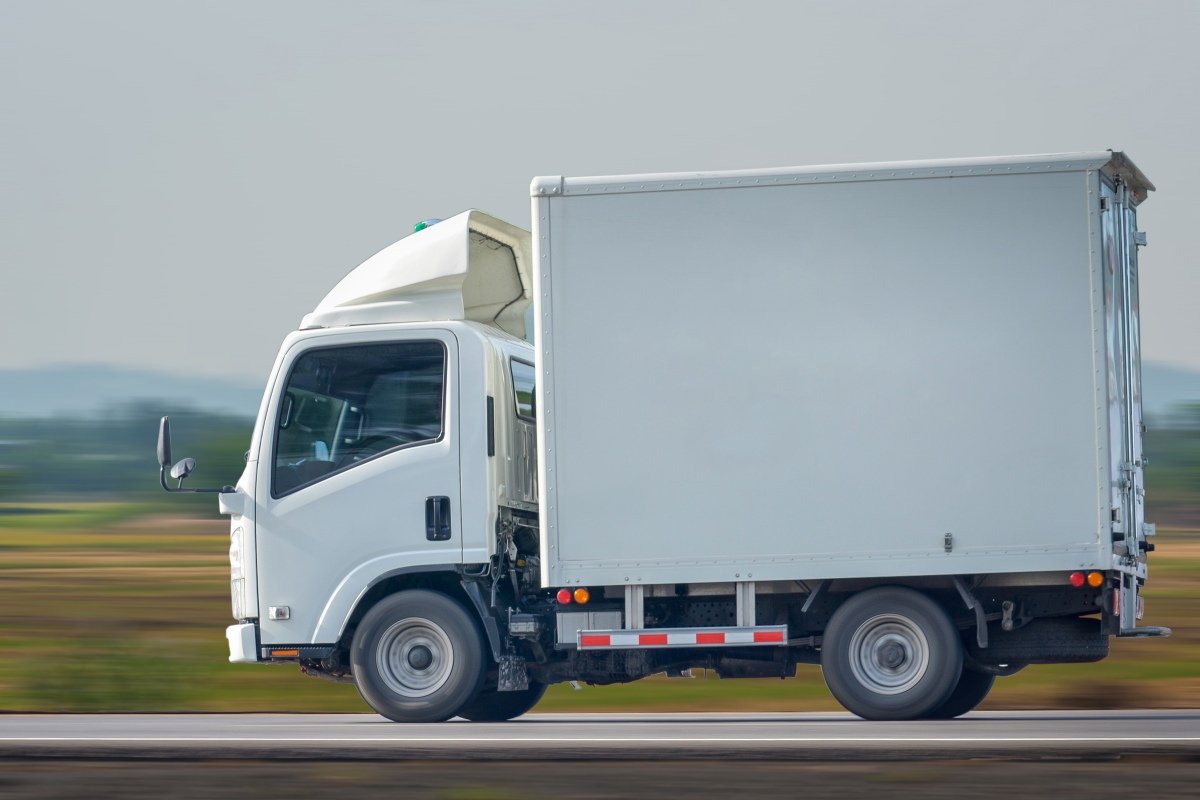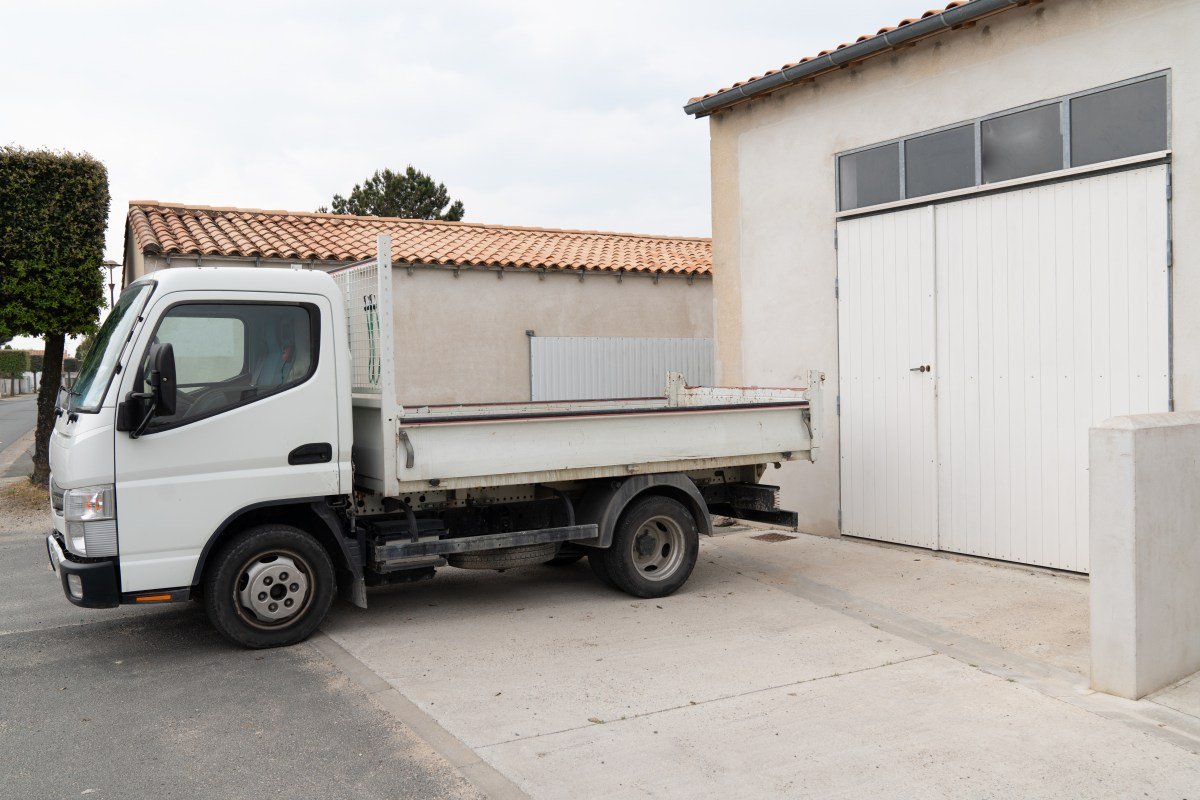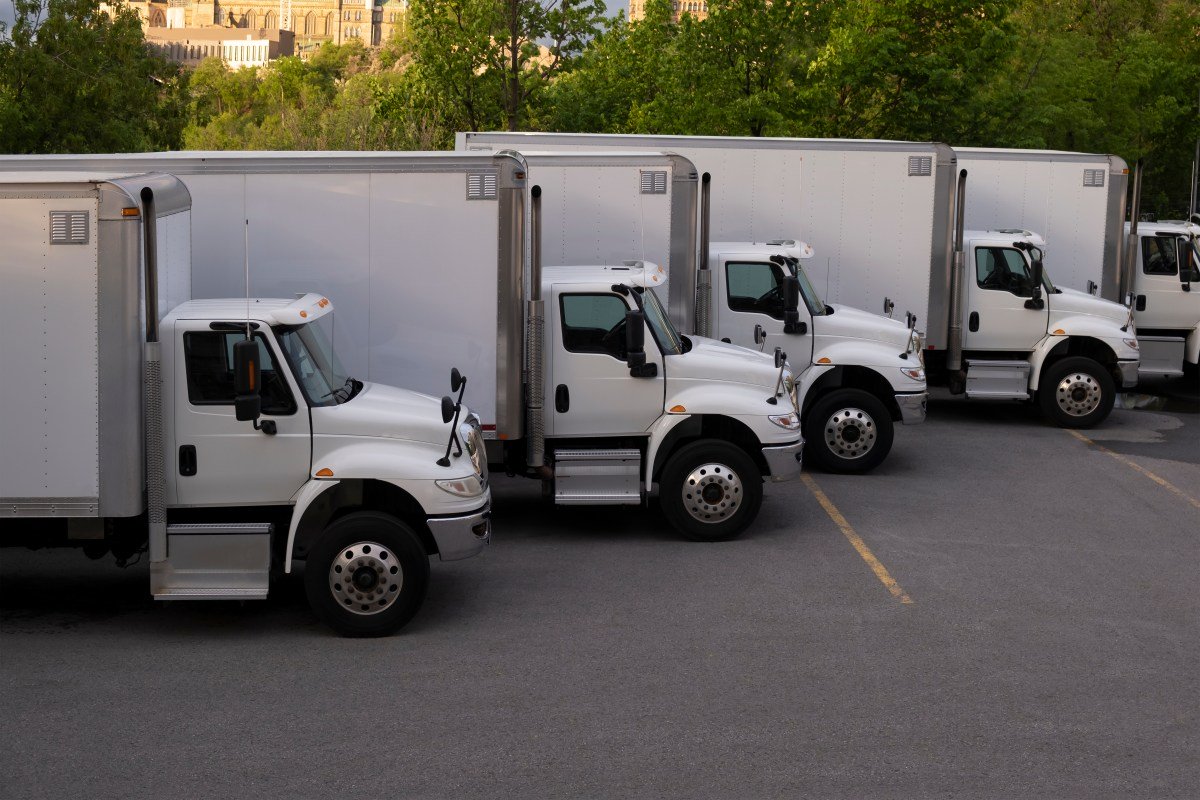Reducing truck emissions is not just about meeting emission regulations. For owner-operators and small fleets, emissions problems usually show up as higher fuel costs and trucks that spend too much time parked instead of hauling freight.
If you run a commercial truck, every decision you make behind the wheel and in the shop affects fuel consumption, greenhouse gas emissions, and long-term reliability.
The good news is that most steps that reduce truck emissions also improve fuel efficiency, protect uptime, and lower operating costs. You do not need new technology to get started. You just need consistency.
Truck Greenhouse Gas Emissions: The Basics
Truck emissions include greenhouse gases, such as carbon dioxide, as well as pollutants such as nitrogen oxides (NOx) and nitrogen dioxide (NO2). These gases are usually emitted from engine exhaust.
These tailpipe emissions contribute to air pollution and increase health risks in busy freight corridors.
Heavy-duty diesel trucks emit pollutants when diesel engines burn fossil fuels. That includes time spent idling, running inefficient routes, hauling unnecessary weight, or operating with poorly maintained systems.
Why Daily Habits Drive Emissions
Fuel use is the biggest factor behind truck emissions. The more diesel a truck burns, the more greenhouse gas and carbon emissions it produces. Long idle times and hard acceleration both increase fuel consumption without moving more freight.
How and where a truck operates also makes a difference. Stop-and-go traffic and extended periods of low engine load are common on delivery routes, refuse routes, and in urban driving. These conditions raise emissions and put added strain on emissions systems that are designed to run hottest and cleanest at steady highway speeds.
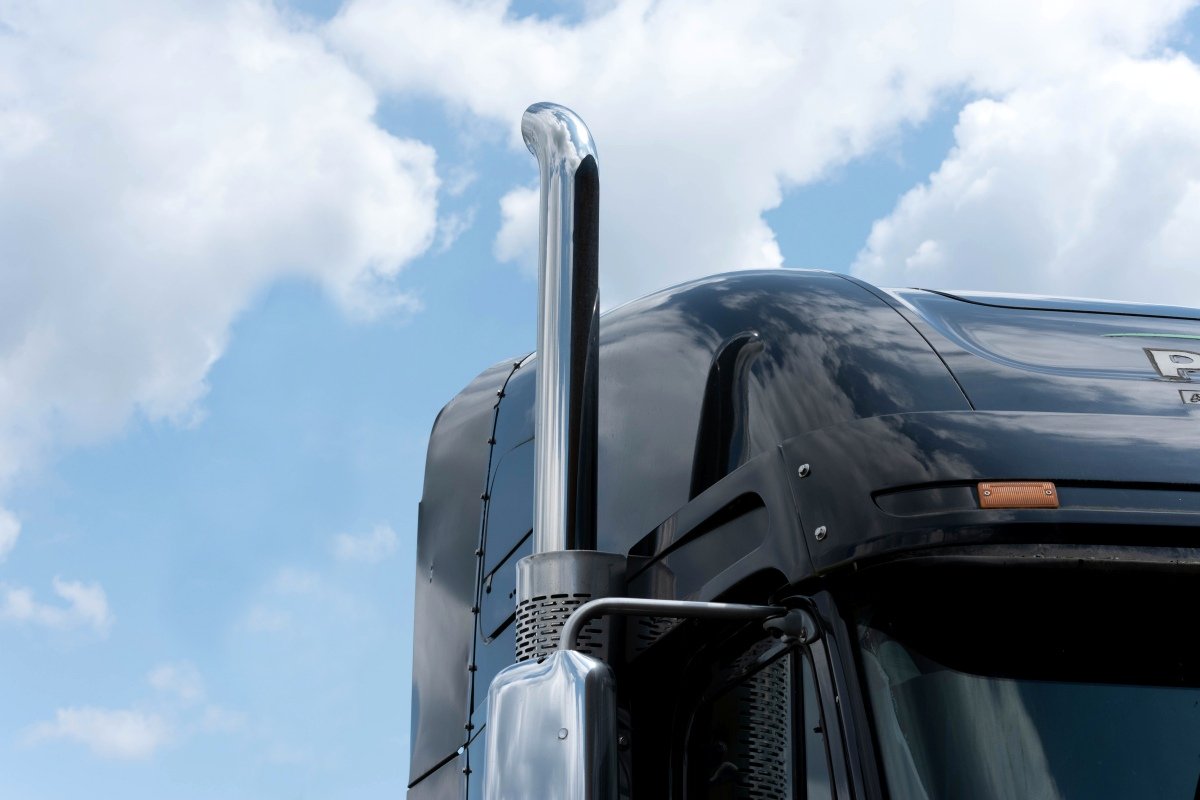
Why Lower Emissions Usually Mean Better Uptime
Lower emissions usually mean your truck’s engine and aftertreatment systems are running closer to their ideal operating conditions. When fuel economy improves, the engine burns less diesel per mile you drive.
Trucks that burn less fuel produce fewer greenhouse gas emissions and cause less stress on critical components like diesel particulate filters and selective catalytic reduction systems.
A major study on medium- and heavy-duty vehicles found that these trucks contribute roughly 22% of total transportation energy use, largely due to their high fuel consumption.
Reducing fuel use directly lowers emissions, because fuel consumption and carbon output are tightly linked in diesel engines. Lower fuel use also means fewer trips through forced regeneration cycles and fewer opportunities for fault conditions, which keeps the truck on the road instead of in the shop.
When emissions stay high, the truck’s onboard systems work harder to meet the targets set by the Environmental Protection Agency (EPA). That extra work can trigger more fault codes and force the engine into protective behaviors that slow performance and interrupt your schedule.
Less strain on these systems means fewer breakdowns, less unscheduled maintenance, and more consistent uptime.
7 Practical Strategies to Reduce Truck Emissions
If you want to reduce your fleet’s greenhouse gas emissions, focus on daily habits and maintenance checks that cut fuel waste and prevent avoidable downtime.
1. Reduce Idle Time
Idle time adds emissions without moving freight. Waiting at the docks and extended winter warmups all burn diesel fuel while producing tailpipe emissions.
Shut the truck off during long waits. Limit warmups to what is needed for safe operation.
Cutting idle time immediately lowers fuel consumption and reduces wear on the engine and emissions systems.
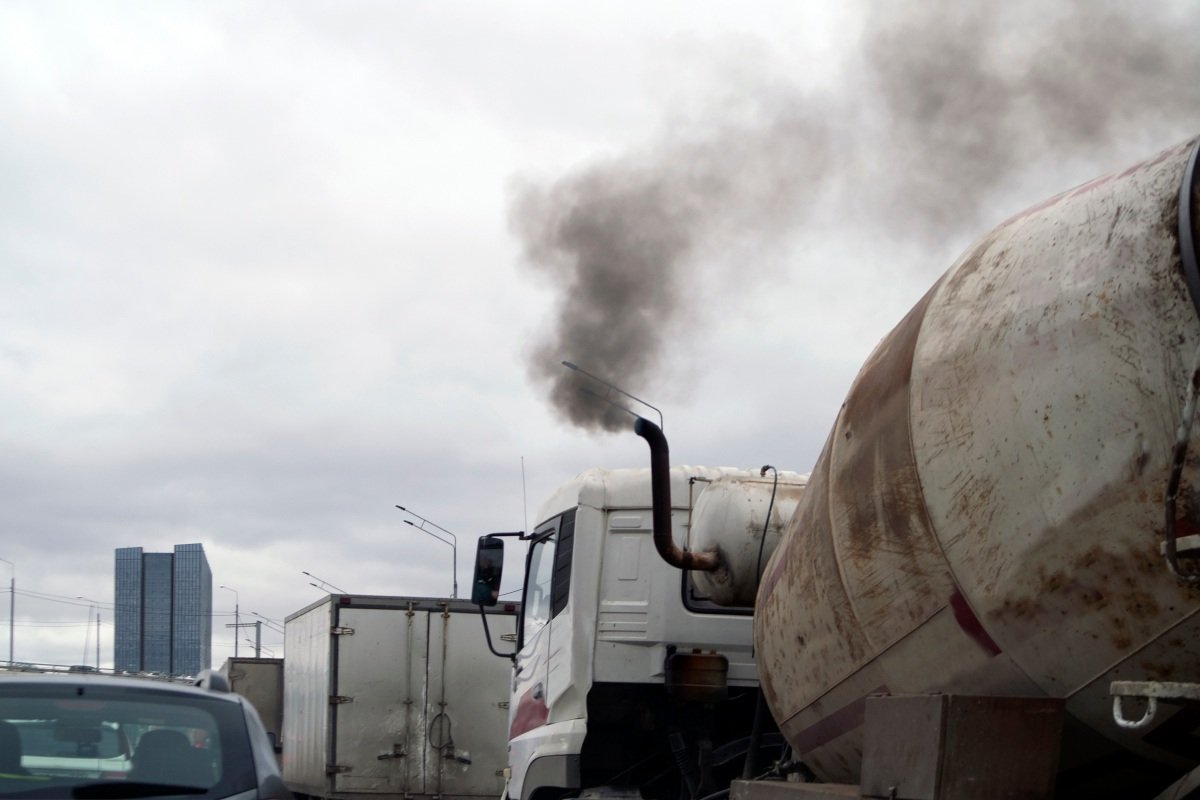
2. Keep DPF, DEF, And SCR Systems Healthy
DPF, DEF, and SCR systems are the main components that control emissions on modern heavy-duty diesel trucks.
The diesel particulate filter (DPF) traps soot and fine particles created during combustion. The truck periodically burns that buildup off during regeneration. When regeneration doesn’t happen enough, soot builds up and causes derates or forced regens.
The selective catalytic reduction (SCR) system reduces NOx emissions by injecting diesel exhaust fluid (DEF) into the exhaust stream. DEF reacts inside the SCR catalyst to break harmful gases into nitrogen and water vapor.
If DEF quality is poor, the level runs low, or a sensor fails, the system cannot do its job.
Small issues in any of these systems tend to snowball. Poor DEF quality, a failing sensor, or restricted exhaust flow can raise emissions and trigger forced regenerations.
Keeping DEF clean, paying attention to warning lights, and fixing problems early protects fuel efficiency and prevents downtime.
Healthy systems also reduce NOx emissions and help keep trucks legal in stricter markets like California.
3. Drive For Fuel Efficiency
Driving habits affect emissions because they control how hard the engine works and how much fuel it burns to do the job.
Smooth acceleration keeps the engine from dumping extra diesel fuel into the cylinders all at once. That reduces fuel burn at takeoff and lowers greenhouse gas emissions before the truck even gets up to speed.
Steady speeds matter for the same reason. Constant throttle lets the engine stay in its most efficient operating range instead of constantly correcting for speed changes.
Keeping RPMs in an efficient operating range (high enough to avoid lugging but low enough to prevent over-revving) helps reduce fuel use, limit excess heat, and extend engine life.
4. Stay On Top Of Tires And Alignment
Low tire pressure increases rolling resistance, which forces the engine to burn more fuel just to maintain speed.
Alignment problems add drag and raise fuel consumption.
Regular pressure checks and alignment inspections improve fuel efficiency without changing routes or schedules. This is one of the lowest-cost ways to reduce emissions.

5. Cut Deadhead And Avoid Congestion
Empty miles burn fuel without generating revenue. Every unnecessary mile increases fuel consumption, raises emissions, and adds wear to the truck without improving the bottom line. Cutting deadhead miles is one of the most effective ways to lower emissions while improving overall efficiency.
Smart route planning is a big part of that strategy. Choose routes that reduce congestion to limit stop-and-go driving. Fewer starts and stops allow diesel engines to stay in more efficient operating ranges.
6. Handle Maintenance Before It Snowballs
Small maintenance issues often raise emissions before they cause breakdowns. Dirty air filters restrict airflow. Sensor problems affect fuel delivery. Minor exhaust leaks can skew emissions readings and trigger avoidable fault codes.
Fix these problems early to protect engine performance and keep fuel consumption under control.
7. Upgrade Equipment When The Numbers Work
Newer trucks often produce lower emissions because their engines run more efficiently and their aftertreatment systems are designed to handle stricter standards. Upgrading equipment can make sense when ongoing repair costs or recurring downtime exceed the monthly payment.
That does not mean every fleet needs zero-emission trucks or a switch to alternative fuels like natural gas. The goal is to match equipment to how you actually operate.
Telematics and AI help track fuel use and maintenance patterns so upgrades happen at the right time, when they support uptime and cash flow rather than create pressure.

Frequently Asked Questions
What’s The Fastest Way To Reduce Truck Emissions?
Cutting idle time and fixing maintenance issues usually delivers the fastest results. These steps reduce fuel consumption and emissions almost immediately.
Does Idling Really Increase Emissions That Much?
Yes. Idling burns diesel fuel while the freight isn’t moving. That increases greenhouse gas emissions and air pollution while adding wear and tear on emissions systems.
Can Poor Maintenance Cause Higher Emissions?
Yes. Problems with diesel particulate filters, SCR systems, or sensors can increase emissions. Poor maintenance also increases downtime and repair costs.
Do Fuel-Saving Driving Habits Reduce Emissions Too?
They do. Driving habits that improve fuel economy also reduce carbon emissions and greenhouse gas emissions across the transportation sector.
Conclusion
Reducing truck emissions comes down to consistent habits. Small changes in driving, maintenance, and planning improve fuel efficiency, protect uptime, and lower operating costs over time.
For fleets and owner-operators, steady improvements matter more than chasing every new technology.
Staying compliant and efficient is easier when your equipment and financing strategy work together.
Whether you are managing repairs or upgrading to fuel-efficient engines, Mission Financial Services offers financing options designed for owner-operators and fleet owners.
Ready to get on the road with flexible truck financing? Start your credit application with Mission Financial Services today.


